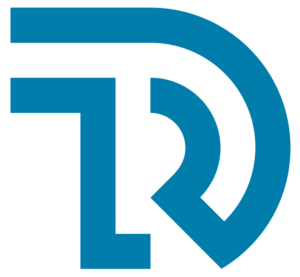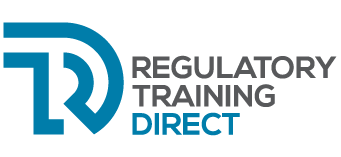Issue 240, September 2023
If you would like to promote your service to our worldwide subscribers, contact us info@regulatorytrainingdirect.com
Training news
New course: Overview of the Australian regulation of agricultural and veterinary chemicals. This is an introduction to the workings of the APVMA (The Australian Pesticides and Veterinary Medicines Authority). Agenda: APVMA introduction – relevant legislation – agricultural chemicals – veterinary chemicals – active constituents – novel products – APVMA assessment process – APVMA fees and charges – issues not covered by APVMA – excluded END products – END product ingredients requirements – END product labelling requirements – END product manufacturing requirements – APVMA FAQ – APVMA appendix – APVMA summary
AU Sports Supplements – medicine or food? This is not a new course but is particularly relevant now that the deadline for compliance is approaching (see item below). Agenda: regulation of sports products in Australia – when is the product classified as a food- when is the product classified as a medicine- the different requirements for each category
Pharmacovigilance obligations: this course has been revised and is ready now. The agenda is: what is pharmacovigilance – TGA references – pharmacovigilance terminology – responsibilities for pharmacovigilance activities – what needs to be reported – reporting timeframes – how to report – record keeping requirements – pharmacovigilance system – summary of SOPs and forms provided with the course.
All our courses can be viewed here: https://www.regulatorytrainingdirect.com/#course-summary
A free webinar for the homecare products industry will be delivered by pH Factor on Thursday 5th October. Your editor will be presenting a 20 min segment on greenwashing. More information and register here.
Follow us on LinkedIn: We hope you like our newsletter. If you want to receive up-to-the-minute announcements on new courses, new content and vital regulatory updates follow us on LinkedIn
Note from the editor.
Therapeutic goods advertising: TGA has published the Therapeutic Goods Advertising Compliance Annual Report 2022-23. We are focussing on this report in this newsletter as this is critical information for anyone supplying complementary medicines in Australia.
Abbie Harris: My fellow director of Regulatory Training Direct is attending Hi Japan (Health Ingredients) Expo 2023 from 4th – 6th October, SupplySide West in Las Vegas from 23rd to 27th October, and Innovation Expo in Auckland New Zealand on 16th November. If you would like to meet with her and discuss our training courses, email abbie@regulatorytrainingdirect.com
Regulatory news
Complementary Medicines and Medical Devices:
Advertising Compliance Annual Report 2022-23. This report covers Australia’s financial year 1st July 2022 to 30th June 2023. This report can be viewed here, and we are summarising some key aspects. The therapeutic goods advertising code is mandatory and applies to advertisements for therapeutic goods to the public. Prescription medicines are excluded as they cannot be advertised to the public, and information sent to medical practitioners, pharmacists and many health practitioners belonging to associations representing herbal medicine and other practitioners is also excluded. This list of associations can be found in Schedule 1 – Part 2 of the Therapeutic Goods Regulations.
2022–2023 Highlights:
Ads removed from social media platforms: 16,328
Significant court decisions: $2.5 million in fines and 2 years imprisonment (for advertising illegal sports supplements and SARMs)
Infringement notices: 228, total value $2,152,512
61 guidance documents, safety alerts, media releases and awareness campaigns published
Direction notices an enforceable undertakings: 5
Warning letters: 249
Changes to the Act and Regulations:
Extemporaneously compounded medicines that contain Schedule 3 (pharmacist only), Schedule 4 (prescription only) or Schedule 8 (Controlled Drugs) ingredients are prohibited from being advertised to the public
Updates to ensure currency of the definition of the World Anti-Doping Code Prohibited Ingredient List (Prohibited List) in the Therapeutic Goods (Declared Goods) Order 2019 (Declared Goods Order)
INTERPOL:
TGA participated in INTERPOL’s Operation Pangea to tackle illicit and counterfeit therapeutic goods worldwide:
More than $2 million of illegal products were prevented from reaching Australia
Globally, more than US$11 million of product were detected and seized
Over 4,000 websites and web links that advertised and sold illicit or counterfeit products were shut down or removed
Operation Pangea-ED specifically tackled illicit and counterfeit erectile dysfunction medication in the Asia Pacific Region
Who reports non-compliant advertising?
3.064 reports received:
3,783 from the general public
885 from government/statutory bodies
652 from companies/business
373 from health practitioners
179 from regulatory/legal consultants
102 from peak healthcare body/organisations
And other sources.
Advertiser compliance following TGA action:
77% compliance rate (compared to a 96% compliance rate in 2021-22).
Allegations and cases by compliance priority
TGA reports figures based on allegations received, cases created, and cases closed. If we sort by cases created:
Medicinal cannabis products
Advertising of unapproved goods on digital platforms
Nicotine vaping products
Unapproved therapeutic goods associated with COVID-19
Unapproved performance and image enhancing therapeutics goods including sport supplements
Unapproved use of restricted and prohibited representations
Unapproved therapeutics goods used in the beauty and cosmetic dental industry
IV drip therapy products
(+ “others”)
All the items listed above are detailed in depth in the report, including case studies.
Sports supplements. We have mentioned this in previous newsletters. There was a three year transition period to comply with the changed regulations and this transition period ends on 30th November. To quote from TGA: sports supplements that make claims relating to performance in sport, exercise or recreational activity and are in a medicinal dosage form (i.e. tablet, capsule or pill) will be regulated as therapeutic goods. If you are shipping sports supplements to Australia that do not comply, they will be seized and either destroyed by customs or sent back to you (both at your expense). More info on TGA site here, and we also offer a one hour course AU Sports Supplements – medicine or food? – this will help you understand if your product will be acceptable as a food, or if it must be submitted to the TGA as a medicine. All medicines (including complementary medicines – herbal and nutritional medicines – must be manufactured in a facility that is licensed to comply with pharmaceutical GMP (PIC/S guidelines). Food GMP or dietary supplement GMP is NOT acceptable. If in doubt, register for our course!
Nutrition and Health claims for Formulated Supplementary Sports Foods are currently being reviewed, see below under Foods.
Poisons standard: has just been updated. October 2023 version is available here. Explanatory notes here.
Pilot programme for sponsors of medical devices. This is designed to help sponsors comply with regulations. Sponsors of medical devices can register for the TGA’s information sessions; read more here.
Product recalls
Product defect correction: Permobil PushTracker E2 and E3 wearable watches, A software problem with the SmartDrive MX2+ App has caused safety issues for operating manual wheelchairs. Learn about this and hot to update your software here.
Felton Grimwade & Bosisto’s is recalling batches of Euky Bear Warm Steam Vaporiser – Humidifier because the enclosed heating element can overheat. The device must be turned off at the power point after steaming has stopped to allow it to cool, or the base of the blue heating module may overheat and disintegrate producing smoke and fumes. What to do, and more info here.
Scandinavian Total Ankle Replacement (STAR) Ankle Prosthesis – a higher than expected fracture rate. Risks may include significant pain, inflammation, soft tissue injury, loss of mobility in the ankle, grinding or other noises, inability to bear weight, and instability in the STAR Ankle. Damage to the metal components of the prosthesis may mean another operation (revision) might be required. Source: TGA
Compliance action
Naturally Elevated and an individual fined $138,600 for the alleged unlawful advertising of medicinal cannabis on websites and social media pages. Source: TGA
Products cancelled from the ARTG
DYNASTY® A-CLASS 15 Degree Crosslinked Polyethylene Lipped Liners/Non-constrained polyethylene acetabular liners (information here), DYNASTY® A-CLASS STD Crosslinked Polyethylene Liners/ Non-constrained polyethylene acetabular liner (information here) and DYNASTY® PC Porous Beaded Shell/Metallic acetabulum prosthesis. (Information here).
Botanical adulterants programme
Cranberry (Vaccinium macrocarpon) is a commonly used herbal medicine, which can be adulterated with lower cost proanthocyanidins from sources such as peanut skin, hibiscus calyx, pine bark, and black rice. Source: BAPP LinkedIn post.
And from NutraIngredients USA a very concerning story about toxic yellow oleander found as a contaminant in weight loss products sold on the internet and labelled as containing Tejecote (Crataegus Mexicana)
Recommended reading: BAPP’s programme is well summarised in a supplement to Nutritional Outlook September 2023. The Adulteration article begins on page 6. In an article “Botanicals Under Fire” starting on page 12, frequently adulterated herbal materials are listed as Ginkgo leaf extract, cordyceps, and bilberry extract, along with essential oils sandalwood oil, boswellia oil, and lavender oil. Also see summary in Nutritional Outlook September 29, 2023
New Zealand
NHPNZ Innovation Expo. Natural Health Products New Zealand is presenting the Innovation Expo 2023 on 16th November in Auckland. Information including speakers and registration details are here. Abbie Harris from Regulatory Training Direct will be presenting, contact her at abbie@regulatorytrainingdirect.com if you would like to connect with her.
Updates to Therapeutic Products Bill are published by the NZ Ministry of Health here and also refer to their regularly updated page Common questions on the Therapeutic Products Bill. Interesting questions about the regulation of natural health products such as does the MOH have a list of prohibited or restricted herbal ingredients? The answer is “No. The Ministry does not have a specific list of prohibited or restricted herbal ingredients, although some herbal ingredients are restricted under the Medicines Act for safety reasons (eg, Atropa belladonna and Datura species). The Bill does not have a proposed list of prohibited or restricted herbal ingredients in it. If the Bill is passed, a list of recognised NHP ingredients would be developed as secondary legislation, in consultation with stakeholders.”
Foods:
Nutrition Panel Calculator
Updated September 2023, new features include:
– improved stability for uninterrupted access
– streamlined process to create recipes using three easy steps
– easier access to tips and guidance
Summary information here, and you can launch the calculator here after you have agreed to FSANZ’ terms and conditions.
Formulated Supplementary Sports Foods – Consultation Paper 2 Nutrition and Health Claims – comment period closed 4th September 2023.
Call for comment
An application from the Queensland University of Technology (QUT) to permit food from a disease-resistant genetically modified (GM) banana. Source: FSANZ
An application to permit the enzyme cellulase to be used as a processing aid in brewing and the production of potable alcohol. Source: FSANZ
An application to allow the sale and use of food made from a new genetically modified (GM) corn. Source: FSANZ
An application seeks approval for the sale and use of food derived from corn line DP915635, genetically modified for herbicide-tolerance and protection from insect pests. Source: FSANZ
Approved variations to the Code:
A1264 – Food derived from drought-tolerant and herbicide-tolerant soybean line IND-00410-5
Food Recalls
Voyager Estate Sparkling Red Grape Juice – unintended fermentation in bottle causing over pressurising and failure of the cap seal – food products containing excess carbonation may cause illness/injury if consumed. Source: FSANZ
Byron Bay Superfoods Wallaby Cookie Dough Bites Double Chocolate Hazelnut and Wallaby Cookie Dough Bites Chocolate Macadamia – potential dairy (milk) allergen contamination Source: FSANZ
Natvia IP M!lk Baking Chocolate – undeclared allergen (milk). Source: FSANZ
In the press:
Canberra’s East Row IGA fined $16,500 for breaching food safety laws, including tampering with expiry dates. The director pleaded guilty to nine breaches of the Food Act. The charges involved misleading conduct, two charges relating to the handling and sale of unsuitable food, non-compliance with food standards and conducting an unregistered food business. The court was shown CCTV footage of staff removing use-by and best-before date stickers and replacing them with new, extended dates. Source: ABC News
Cosmetics, Personal Care and TGA Listed Sunscreens:
Sunscreens – who is responsible for quality and safety? An excellent short article by John Staton, the expert in sunscreen regulations and formulation, published on LinkedIn here.
Register for webinars:
Webinar 2 – Details of proposed changes to categorisation, reporting and record keeping. Tuesday 17th October
Webinar 3 – Details of proposed changes to categorisation, reporting and record keeping (focus: end use in cosmetics). Thursday 19th October.
Details of topics covered, and registration form, can be found here.
Comment invited: changes to categorisation, reporting and record keeping. Comment period closes 9th November 2023.
This is to address stakeholder advice that certain requirements of the General Rules are challenging to comply with. AICIS has also identified aspects of the General Rules that they think should be strengthened to ensure protection of human health and the environment or clarify the intent of certain requirements. Read about the key aspects of the proposal, and how to have your say at this AICIS web page.
Temporary record-keeping provisions for NICNAS introducers extended to 1 April 2024. This is for introducers that transitioned from NICNAS to AICIS. To be eligible to use this record keeping provision until 1st April 2024 you must meet all these criteria: you imported or manufactured (introduced) a chemical under NICNAS (before 1 July 2020); the chemical you introduced was listed on the NICNAS Inventory and you continued to introduce the same chemical under AICIS after 1 July 2020; and you don’t know your chemical’s CAS name or CAS number. More information here
2023-24 AICIS registration fees and charges (1st September 2023 – 31st August 2024) are all listed here.
Draft evaluations open for comment until 27th November 2023: 20 draft evaluations open for comment, view them here and select which one(s) you wish to comment on.
Chemicals (two) added to the inventory following issue of assessment certificate (early listing) as of 19th September:
CAS 1000399-21-2, 4,8,11-Dodecatrienal, a fragrance ingredient in cosmetic, personal and household products: imported into Australia at up to 0.2 tonnes per year; imported at a concentration of 0.006% or less in finished end-use products
CAS 2576531-09-2, Oils, sandalwood, santalene synthase-modified Rhodobacter sphaeroides-fermented, from D-glucose, oxidized: a fragrance ingredient in finished products used by workers and consumers with the following requirements: Imported up to 1 tonne per year; Household products at a concentration up to 0.02%; Cosmetics at a concentration up to 0.1%; Fine fragrances at a concentration up to 0.18%; Air care products at a concentration up to 2%. Source: AICIS
Chemicals added to the Inventory 5 years after issue of assessment certificate Five chemicals listed here.,
Correction of chemicals names 5th September 2023. Ten chemicals listed here, with previous name and new varied name, mainly due to CAS updating the name.
Additional cosmetics and personal care news provided by pH Factor:
Safe Work Australia has published revised guidelines to hazardous chemicals. This summarises the responsibilities of the person or business conducting the activity along with the workers’ duties. Topics included are risk management; keeping workers safe; health monitors for workers; notifying the regulatory and emergency services; maintaining the work environment; suppliers, manufacturers and imports of hazardous chemicals; and transporting hazardous chemicals. Source: Safe Work Australia.
. . . . . . . . . . . . . . . . . . . . . . . . . . . . . . . .
Published by Regulatory Training Direct www.regulatorytrainingdirect.com
Providing regulatory training courses for complementary medicines, GMP, foods, cosmetics and dietary supplements.
This newsletter is sent at no charge. You are welcome to forward this to any colleagues who may find it useful. To receive this newsletter regularly click this link
Don’t want these emails? Unsubscribe or Manage Email Subscriptions



